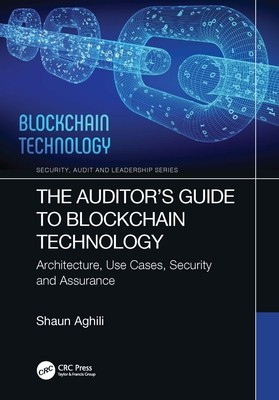
- We will send in 10–14 business days.
- Author: Shaun Aghili
- Publisher: CRC Press
- ISBN-10: 1032078251
- ISBN-13: 9781032078250
- Format: 17.8 x 25.4 x 1.7 cm, minkšti viršeliai
- Language: English
- SAVE -10% with code: EXTRA
Reviews
Description
The 21st century has been host to a number of information systems technologies in the areas of science, automotive, aviation and supply chain, among others. But perhaps one of its most disruptive is blockchain technology whose origin dates to only 2008, when an individual (or perhaps a group of individuals) using the pseudonym Satoshi Nakamoto published a white paper entitled Bitcoin: A peer-to-peer electronic cash system in an attempt to address the threat of "double- spending" in digital currency.
Today, many top-notch global organizations are already using or planning to use blockchain technology as a secure, robust and cutting-edge technology to better serve customers. The list includes such well-known corporate entities as JP Morgan, Royal Bank of Canada, Bank of America, IBM and Walmart.
The tamper-proof attributes of blockchain, leading to immutable sets of transaction records, represent a higher quality of evidence for internal and external auditors. Blockchain technology will impact the performance of the audit engagement due to its attributes, as the technology can seamlessly complement traditional auditing techniques. Furthermore, various fraud schemes related to financial reporting, such as the recording of fictitious revenues, could be avoided or at least greatly mitigated. Frauds related to missing, duplicated and identical invoices can also be greatly curtailed.
As a result, the advent of blockchain will enable auditors to reduce substantive testing as inherent and control audit risks will be reduced thereby greatly improving an audit's detection risk. As such, the continuing use and popularity of blockchain will mean that auditors and information systems security professionals will need to deepen their knowledge of this disruptive technology.
If you are looking for a comprehensive study and reference source on blockchain technology, look no further than The Auditor's Guide to Blockchain Technology: Architecture, Use Cases, Security and Assurance. This title is a must read for all security and assurance professionals and students looking to become more proficient at auditing this new and disruptive technology.
EXTRA 10 % discount with code: EXTRA
The promotion ends in 21d.17:25:03
The discount code is valid when purchasing from 10 €. Discounts do not stack.
- Author: Shaun Aghili
- Publisher: CRC Press
- ISBN-10: 1032078251
- ISBN-13: 9781032078250
- Format: 17.8 x 25.4 x 1.7 cm, minkšti viršeliai
- Language: English English
The 21st century has been host to a number of information systems technologies in the areas of science, automotive, aviation and supply chain, among others. But perhaps one of its most disruptive is blockchain technology whose origin dates to only 2008, when an individual (or perhaps a group of individuals) using the pseudonym Satoshi Nakamoto published a white paper entitled Bitcoin: A peer-to-peer electronic cash system in an attempt to address the threat of "double- spending" in digital currency.
Today, many top-notch global organizations are already using or planning to use blockchain technology as a secure, robust and cutting-edge technology to better serve customers. The list includes such well-known corporate entities as JP Morgan, Royal Bank of Canada, Bank of America, IBM and Walmart.
The tamper-proof attributes of blockchain, leading to immutable sets of transaction records, represent a higher quality of evidence for internal and external auditors. Blockchain technology will impact the performance of the audit engagement due to its attributes, as the technology can seamlessly complement traditional auditing techniques. Furthermore, various fraud schemes related to financial reporting, such as the recording of fictitious revenues, could be avoided or at least greatly mitigated. Frauds related to missing, duplicated and identical invoices can also be greatly curtailed.
As a result, the advent of blockchain will enable auditors to reduce substantive testing as inherent and control audit risks will be reduced thereby greatly improving an audit's detection risk. As such, the continuing use and popularity of blockchain will mean that auditors and information systems security professionals will need to deepen their knowledge of this disruptive technology.
If you are looking for a comprehensive study and reference source on blockchain technology, look no further than The Auditor's Guide to Blockchain Technology: Architecture, Use Cases, Security and Assurance. This title is a must read for all security and assurance professionals and students looking to become more proficient at auditing this new and disruptive technology.


Reviews